“The most important goal of our company is to produce kiwi fruits that are safe for customers to eat, especially children who are our main target group. This does not only mean we look at the food safety, but also at the ripeness of the fruit. We want to make it more convenient and safe for small children to eat our delicious kiwi fruit.” Said KK from Ikilung. They produce kiwi fruit in China for the Chinese market - red-hearted, yellow kiwi fruit and green kiwifruit, both with a very sweet taste, which is in accordance with the preferences of the Chinese customer.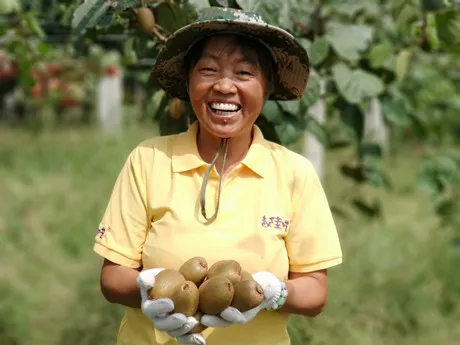
Harvested red hearted kiwi fruits from the field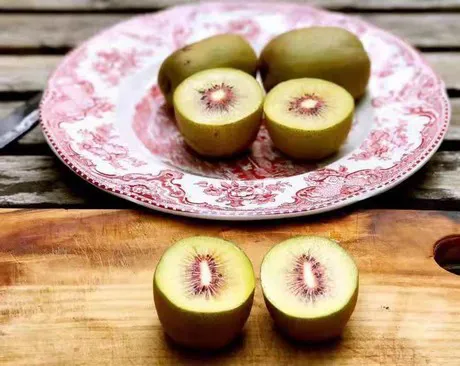
Red hearted yellow kiwi fruit
Kiwi fruit growing conditions this year
The production area of Ikilung is quite extensive. They own 1200 mu of kiwi fruit orchards in Shaanxi, Guizhou and Sichuan. “This year is the fourth year we harvested our kiwi fruits, so our production output also grew in comparison with last year. We doubled our output this year. However, our green kiwi fruit variety decreased this year by 20% in our Shaanxi orchards, because of a heavy hailstorm in April – May. The plants were just coming into flower, so that is why it had quite a strong influence.”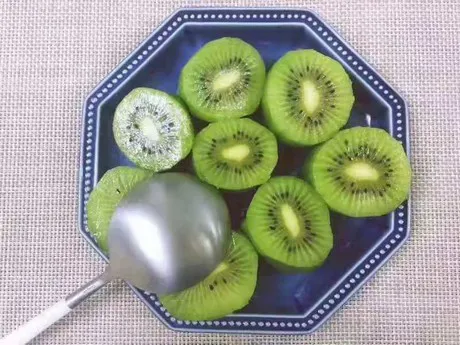
Freshly cut green kiwi fruit
“Our product is very popular in the east and the north of China, in Dongbei, Zhejiang, Shanghai and Jiangsu, where we sell most of our products. Though, we also reach other areas in China through online sales with express delivery (kuaidi). We do not use any fertilizer or pesticides, but just the things the plants really need. Our orchard is very organic and you can see that in the many animals that live on our orchard. The ecosystem on our orchard is very in balance and that is why you can see a lot of small insects, snakes and even little bird nests.”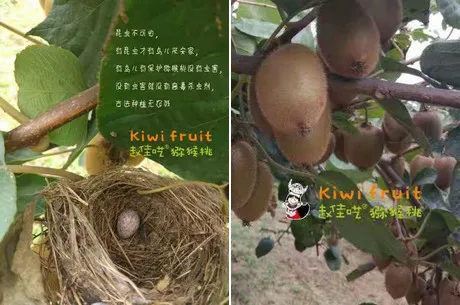
Little birdnest on the kiwi fruit orchard
Growing tomatoes in a natural way
Ikilung is not only focusing on producing kiwi fruits on an organic way, but also focuses on tomato plants. They work together with a Chinese research institute which is using a Japanese tomato variety and Dutch bumblebees to pollinate tomato plants in a natural way. “By using the Dutch bumblebees for pollination, it is more natural way of producing the tomatoes. Nowadays a lot of tomatoes are produced without pollination, so the tomato does not have any seeds. Though, when we are producing it in a more natural way, the tomato also gets seeds, which is the original structure of the tomato. We are very happy to participate in this program and help to develop this further. Besides tomatoes, we also look at 20 other different products to grow in the same way as the tomatoes, we really support this kind of growing to be more sustainable in the future,” KK added.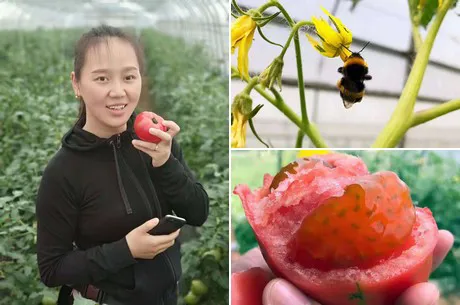
Tomato and Dutch bumblebee
KK
Ikilung
Phone: +86 186 1619 5123
Email: [email protected]
